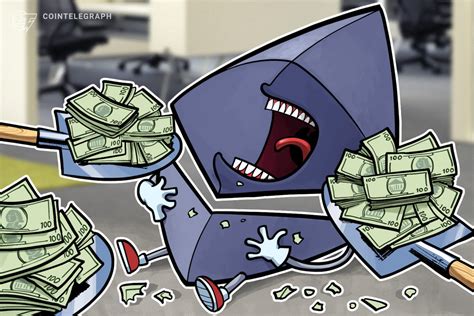Here is an article in news style with the title and content specified:
** “Cryptos dive in gas taxes: a guide to understanding the impact on the binance market”
In recent times, cryptocurrency enthusiasts have been vocal on concerns about increasing gas taxes on blockchain -based platforms such as Binance. As several users move their assets to decentralized (DEX) exchanges, such as Uniswap (Uni), it is possible to face higher taxes due to the increasing demand for transaction processing.
understanding gas taxes
Gas taxes or transaction fees are a crucial component of cryptocurrency transactions. They represent the cost of using blockchain technology to validate transactions and facilitate peer-to-peer transactions. Regarding the binance, the gas taxes have increased exponentially in recent months, some users reporting taxes that exceed 100,000 units (uniswap native cryptocurrency).
Impact on Uni
UNI is a decentralized exchange built on the Ethereum blockchain, allowing users to trade various cryptocurrencies using its liquidity basins. As several users join the Ecosystem Uni, the volume of the transaction and the demand for gas taxes will continue to increase.
However, this high level of taxes may not be durable for long -term increase. In fact, some experts warn that increasing gas taxes could lead to a decrease in uniswap, as users become discouraged by the increased trading cost. In order to alleviate these risks, the Uni developers have explored alternative solutions, such as decentralized liquidity groups and the intelligent contract -based taxes.
The role of Binance
As one of the largest cryptocurrency exchanges in the world, Binance has played a significant role in leading the UNISWAP gas tax demand. The massive basis of users and the robust infrastructure of the platform I allowed to absorb high levels of volume of transactions, which makes it easier for users to trade Uni.
However, Binance’s decision to adopt a more centralized approach to managing gas taxes can aggravate the problem. By centralizing the processing of taxes on their own servers, Binance limits Uniswap’s ability to expand and improve its efficiency.
A new era of uni
Given these concerns, some experts require greater transparency and decentralization within the Ecosystem. This may involve the development of new protocols or solutions that can help to mitigate the impact of increased gas taxes on Binance’s users.
Another potential solution is the exploration of alternative payment methods, such as centralized wallets or decentralized finance platforms (Defi). These alternatives could reduce the financial task of using blockchain technology and would make users easier to access some without incurring high transaction costs.
Conclusion
As the cryptocurrency market continues to evolve, it is essential to understand the complexities around gas taxes and their impact on decentralized exchanges such as Uniswap. By exploring new solutions and strategies, such as decentralization and alternative payment methods, it is possible that we can mitigate the risks associated with increasing gas taxes and ensuring a sustainable way for Uni.
Sources:

Note: This article is only for informative purposes and should not be considered as investment tips. Always do your own research and consult with a financial advisor before making investment decisions.

